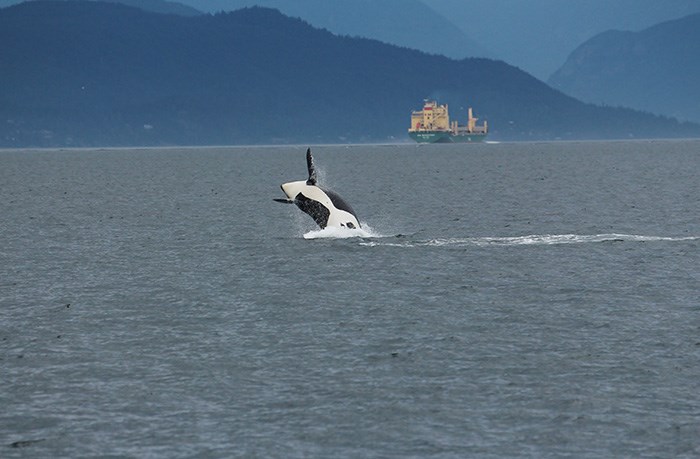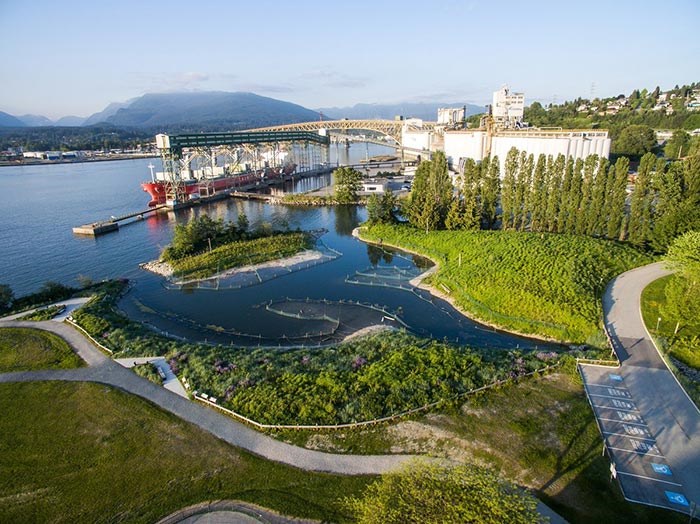This year marks the five-year anniversary of the Enhancing Cetacean Habitat and Observation (ECHO) Program, a collaboration led by the Vancouver Fraser Port Authority that has helped to reduce underwater noise from ships for the benefit of endangered southern resident killer whales.
 Photo: Port of Vancouver
Photo: Port of Vancouver
As global trade grows, so too do the number of ships in the Salish Sea, where busy shipping lanes overlap with critical habitat for the iconic southern resident killer whales. Much of this traffic is heading to and from the Port of Vancouver, Canada’s largest port.
That’s why the Vancouver Fraser Port Authority, the federal agency responsible for the stewardship of the Port of Vancouver, launched the Enhancing Cetacean Habitat and Observation (ECHO) Program in 2014, with a goal to reduce the effects of marine shipping on whales.
There are plenty of naturally-occurring sounds in the ocean, but research shows commercial ships—cargo, ferries and other large ships—are a key contributor to underwater noise, which can interfere with the ability of whales to find prey, navigate and communicate. You can hear what these ships sound like underwater by listening to recordings captured by the Port of Vancouver HERE.
The ECHO Program is a collaborative, science-based initiative aimed at better understanding and managing the cumulative effects of shipping activities on at-risk whales throughout the southern coast of British Columbia. As part of the program, the Vancouver Fraser Port Authority works with government, the marine transportation industry, Indigenous individuals, conservation and environmental groups, and scientists to advance ECHO Program projects around and beyond the Port of Vancouver.
Five years ago, the effects of marine shipping on whales were not well understood. Since its inception, the ECHO Program has used underwater microphones to measure noise levels, including the sound of more than 10,000 ship movements in the Salish Sea. Over 5,000 large ships have also voluntarily slowed down in, or moved away from, important southern resident killer whale feeding areas to reduce underwater noise in those areas. These ECHO Program initiatives are advancing world-leading science that tells us there are solutions to help reduce the effects of shipping on marine mammals.
 Photo: Vancouver Fraser Port Authority
Photo: Vancouver Fraser Port Authority
That science is being noticed both locally and internationally, and there is now increased global awareness of the effects of marine shipping on whales. The ECHO Program team has delivered research findings at the International Maritime Organization and the United Nations, and the program has been recognized with the Lloyds List Environmental Award and the Ocean Award for Conservation Leadership in Support of Corporate Responsibility. Indeed, the program has become a model of how voluntary collaboration can result in meaningful change to benefit the environment.
The ECHO Program is one way the Vancouver Fraser Port Authority is moving toward its vision for the Port of Vancouver to become the world’s most sustainable port, demonstrating the port authority’s commitment to environmental stewardship and protection of our land and of course, our water.
To learn more about the ECHO Program and the Vancouver Fraser Port Authority's other environmental initiatives, visit portvancouver.com/environment


